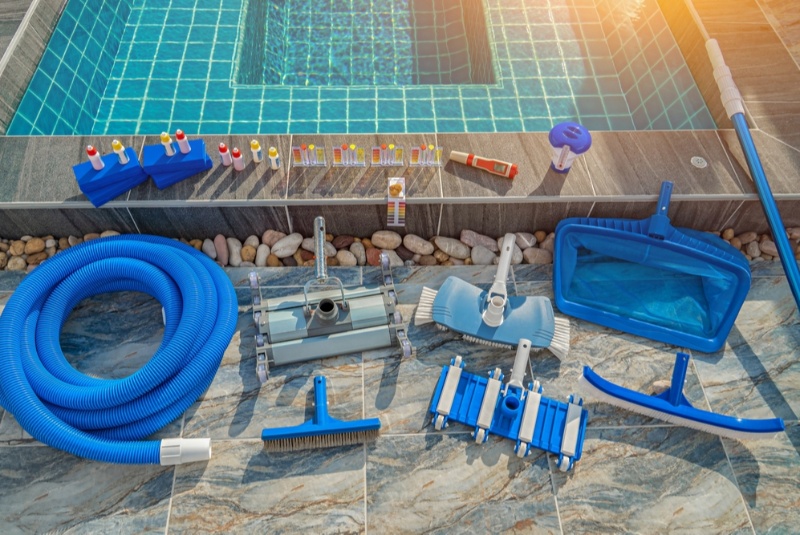Embarking on the journey of installing or renovating a swimming pool at your residence demands careful consideration of various pool equipment and accessories that are essential in maintaining the functionality and aesthetic appeal of the pool. Making smart decisions in selecting the right equipment can not only save money but also ensure a smoothly operating pool system. In this buyer’s guide, we elucidate the crucial components you should focus on while outfitting your swimming pool.
Step 1: Pool Filtration System
Sand Filters
Pros:
- Affordable
- Easy to maintain
Cons:
- Less effective in filtering smaller particles
Cartridge Filters
Pros:
- Filters smaller particles
- Energy-efficient
Cons:
- Require frequent cleaning
Diatomaceous Earth (DE) Filters
Pros:
- Highly efficient filtration
- Traps the smallest of particles
Cons:
- Expensive
- Complex maintenance
Buying Tip:
Choose a filter based on your budget, the size of the pool, and the level of maintenance you are willing to undertake.
Step 2: Pool Pumps
Pool pumps circulate water through the filter to remove debris and help in distributing chemicals evenly.
Single-Speed Pumps
Pros:
- Lower upfront cost
- Reliable
Cons:
- Higher operational costs
Variable-Speed Pumps
Pros:
- Energy-efficient
- Quiet operation
Cons:
- Higher upfront cost
Buying Tip:
Opt for variable-speed pumps for long-term energy savings and quieter operation.
Step 3: Pool Heaters
Gas Heaters
Pros:
- Rapid heating
- Suitable for colder regions
Cons:
- High operational cost
Heat Pumps
Pros:
- Energy-efficient
- Environmentally friendly
Cons:
- Slower heating
Solar Heaters
Pros:
- Utilizes renewable energy
- Low operational costs
Cons:
- Weather-dependent
- High upfront cost
Buying Tip:
Evaluate your region's climate and your heating needs before choosing a heater. Solar heaters can be a good choice for sun-rich areas.

Step 4: Pool Cleaners
Suction-Side Cleaners
Pros:
- Affordable
- Easy to install
Cons:
- Can increase pressure on the pool’s filtration system
Pressure-Side Cleaners
Pros:
- Have their filtration bag
- Efficient in cleaning large debris
Cons:
- Require a booster pump
Robotic Cleaners
Pros:
- Highly efficient
- Energy-saving
Cons:
- Expensive
Buying Tip:
For an easy and efficient cleaning process, robotic cleaners, though expensive, are the best choice.
Step 5: Pool Lighting
Proper lighting can enhance the safety and aesthetics of your pool.
Incandescent Lights
Pros:
- Cheaper
- Bright light
Cons:
- Higher energy consumption
LED Lights
Pros:
- Energy-efficient
- Long lifespan
Cons:
- Expensive
Buying Tip:
To save on energy bills in the long run, investing in LED lighting is a smart choice.
Step 6: Pool Covers
Manual Covers
Pros:
- Affordable
- Easy to install
Cons:
- Require physical effort to set up
Automatic Covers
Pros:
- Easy to operate
- Enhance safety
Cons:
- High upfront cost
Buying Tip:
Automatic pool covers offer safety and ease of operation, making them a worthwhile investment, especially for families with children and pets.
Conclusion
When it comes to swimming pool equipment, the market offers a plethora of options, each with its set of pros and cons. It’s imperative to conduct a meticulous analysis based on your pool’s characteristics, your geographical location, and your budget to make informed decisions. Always remember, the cheapest option is not always the best, and investing wisely in quality equipment can save you from future hassles and unwanted expenses, granting you a serene and splendid swimming oasis in your backyard. Make your choices smartly, and dive into the pleasures of a well-equipped pool.


